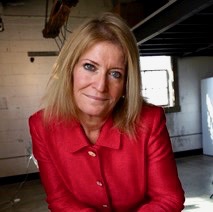By Susan Glickman, Southern Alliance for Clean Energy
Drastic times call for drastic measures, and society is making unprecedented changes to the ways we govern ourselves, school our children, shop, work, manage finances, and socialize.
Constant hand-washing is the new norm and we are making individual sacrifices for the common good. We continue to drastically change our behaviors in ways that, until recently, would have been unimaginable.
COVID-19 is teaching us that we can come together, despite our differences, and take action, inconvenient as it may be, to support our common goal of a safe and healthy future on our planet. At the same time, this experience is teaching us the value and benefits of good science and its capability to keep us safe.

In Florida, these lessons have special implications as the climate crisis presents current and near future threats from rising seas, saltwater intrusion, and increasingly intense weather events. Climate impacts are a reality for those on the frontlines of this crisis, and Floridians are already paying the price, as extreme weather events like flooding, increased hurricane intensity, and public health threats like heat and mosquito-borne diseases are on the rise.
The health crisis posed by coronavirus is like a house on fire demanding, and receiving, emergency responses – from government decisions to voluntary individual and collective actions. Because the climate crisis unfolds more slowly, over decades, it is harder to rally the urgent measures that are needed to avoid the worst effects. But as we work to overcome the immediate threats we face with coronavirus, we must also prevent future threats to our health and well-being.
Trusting good science, taking strong action, and getting out in front of a problem is critical to avoiding catastrophe – for both the COVID-19 pandemic and the crisis awaiting us down the road with climate change.
Both challenges require us to heed the warnings of scientists and doctors.
Both challenges require a global response and cooperation. No one country or region can take on either of these problems singlehandedly.
It should also be clear that in a time of crisis, we must not compound problems.
Yet, in the midst of one global crisis, the Trump Administration is deepening another by rolling back fuel efficiency standards for vehicles, accelerating levels of dangerous carbon pollution driving the climate crisis and increasing air pollution that leads to chronic respiratory problems that contribute to complications from diseases like COVID-19.
Plus, the U.S. Environmental Protection Agency is allowing factories, power plants, and other companies to stop routine testing for pollutants if they claim operational challenges like staffing shortages from the coronavirus pandemic.
With new studies confirming that high levels of air pollution compromises human health, and with 40% of Americans already living in communities with deadly air pollution, instead of reducing the danger, we’re inviting more of it with bad policies.
Rather, we should follow the sage advice of Benjamin Franklin, who in 1735 coined a now-famous phrase, “An Ounce of Prevention is Worth a Pound of Cure.” This guidance rings true today for all humankind as we face threats to our health and well-being. To prevent the worst damage from the climate crisis, we must take meaningful action now.
Some steps are underway. The Florida Legislature recently acknowledged that “climate change may have significant impacts to this state which will require the development of avoidance, adaptation, and mitigation strategies to address these potential impacts on future state projects, plans, and programs.”
Moving forward, state-financed construction will now require a sea-level impact projection study. A master plan for electric vehicle (EV) charging infrastructure will be created. This is particularly significant for our state because a significant part of Florida’s carbon dioxide emissions are produced by the transportation sector. EVs can help reduce emissions, improving public health and simultaneously mitigating the impacts of climate change.
Throughout Florida, regional resiliency coalitions of local governments have formed. These groups are conducting greenhouse gas inventories and developing regional resilience plans; and many municipalities are hiring sustainability directors and resilience officers.
These are important steps that can help improve the future for Floridians.
One thing for certain is that in the age of COVID-19 and the climate crisis, we are all in this together. We must unite to do what it takes to protect ourselves and our neighbors.
Susan Glickman is the Florida Director of Southern Alliance for Clean Energy. www.cleanenergy.org
“The Invading Sea” is the opinion arm of the Florida Climate Reporting Network, a collaborative of news organizations across the state focusing on the threats posed by the warming climate.



